Migrant families fought for reunification months after separation policy ended
This story is a part of an ongoing ABC News project called Borderline, documenting immigration at the US-Mexico border.
Ariel, 6, is all smiles as he FaceTimes with his parents and sister. "Missing you always," his father Jesus says in Spanish right before they disconnect.
For nine months, their phone has been the only bridge between these parents, living in Honduras, and their son, staying with relatives in Washington, D.C.
When Ariel and his father Jesus, a migrant from Honduras who requested that ABC News not print his last name for his family's safety, crossed the U.S.-Mexico border last spring, they were detained by U.S. immigration authorities, and then separated.
Jesus said that he told the officers that he would not part with his son.
"No. No, I am not giving him away. You will have to kill me first," Jesus said he told them in Spanish. "They turned me around on my back to face the wall. And they put [Ariel] in a room. When I turn around, my son is no longer there."
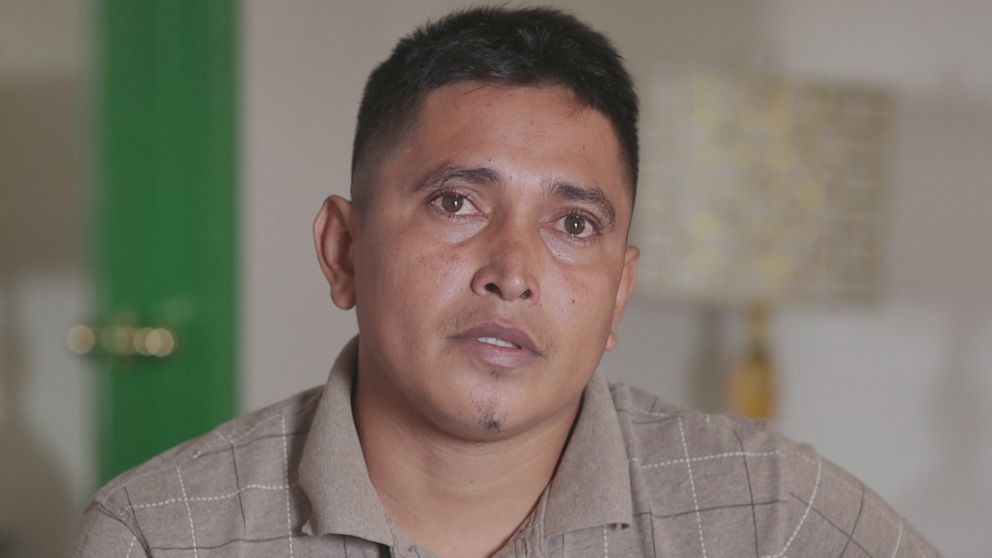
This family is one of thousands that were caught in the crosshairs of the Trump administration's short-lived "zero-tolerance" policy, rescinded last June, that resulted in children being separated from their parents after crossing the southern border.
The full impact of the practice is still unknown, particularly after an internal government report in January revealed that potentially thousands more families were separated than the over 2,700 that had been previously reported. Last week, government lawyers predicted that it could take up to two years to identify all migrant families separated during the Trump administration.
When ABC News producers first met Jesus, his wife Mira and their daughter, Riccy, in Tijuana, Mexico, in February, they were on a weeks-long journey to the U.S., hoping to reunite with young Ariel and seek asylum. They were joined by 28 other migrant parents who had all been deported without their children under the "zero-tolerance" policy.
"These parents have been incredibly traumatized by the separation from their children," said Erika Pinheiro, their lawyer and the Litigation and Policy Director of Al Otro Lado, a nonprofit organization that provides legal services to migrants, deportees and refugees.
Jesus said he made the decision to leave Honduras with his son in May 2018 when threats were made on their lives, a danger made more real after gang members killed his brother-in-law, he said. He planned to stay with Ariel in the U.S., and then later bring Mira and Riccy.
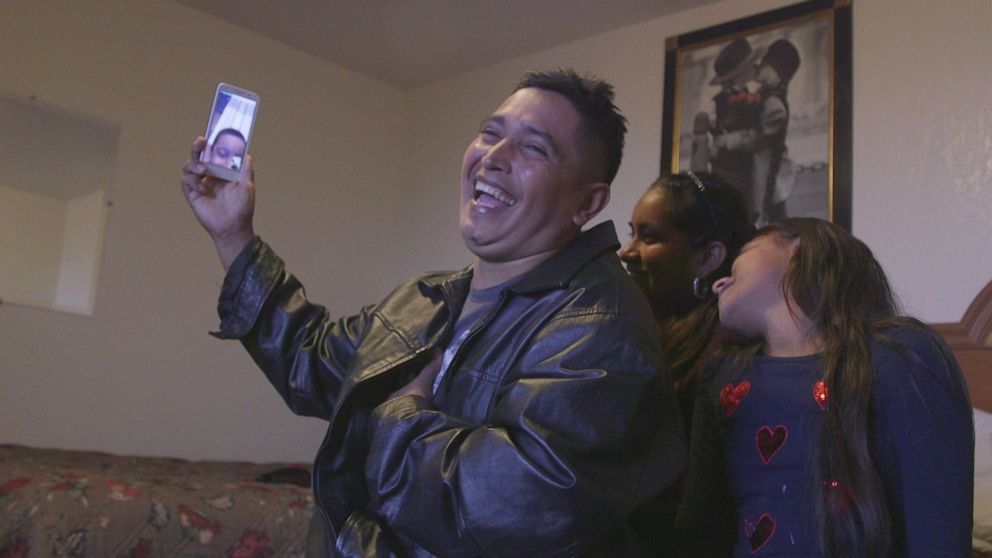
But just days before the father and son set off, then-Attorney General Jeff Sessions implemented the controversial "zero-tolerance" policy for illegal entry.
"If you are smuggling a child, then we will prosecute you and that child may be separated from you as required by law," Sessions said last spring.
Jesus said that after officials took his son away, he was given a document in English to sign that he thought was an asylum application, but was instead a deportation order.
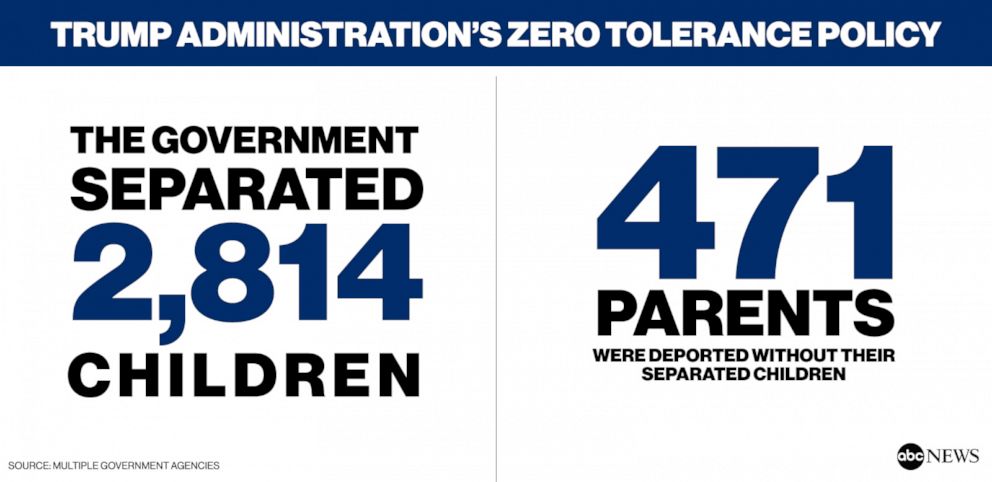
Although Jesus felt tricked, he was said he was willing to leave the country, but not without his child.
"I was telling them, it was fine if they didn't want to give me asylum but to give me back my son since I was leaving," Jesus said. "And they said, 'Well, sir, no one steals children here. Your son is doing well. And we will give him back to you at the airport.'"
But when he arrived at the airport, there was no sign of his little boy.
"They kept lying to him and telling him that he would be reunified in a few days, when his son was going to be on the plane, when they went back to Honduras. He's not the only father that they had to physically, forcibly put on the plane to be deported without the child," Pinheiro said.
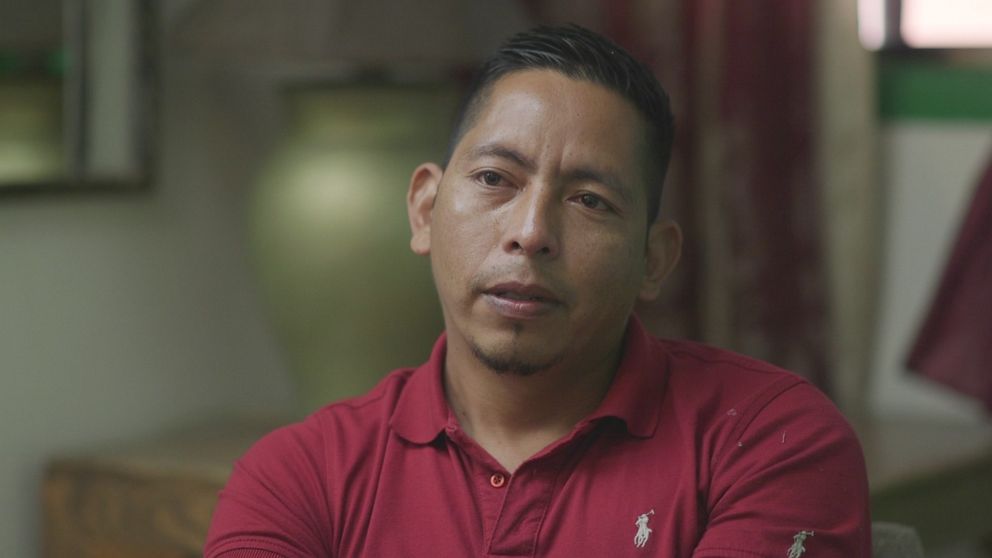
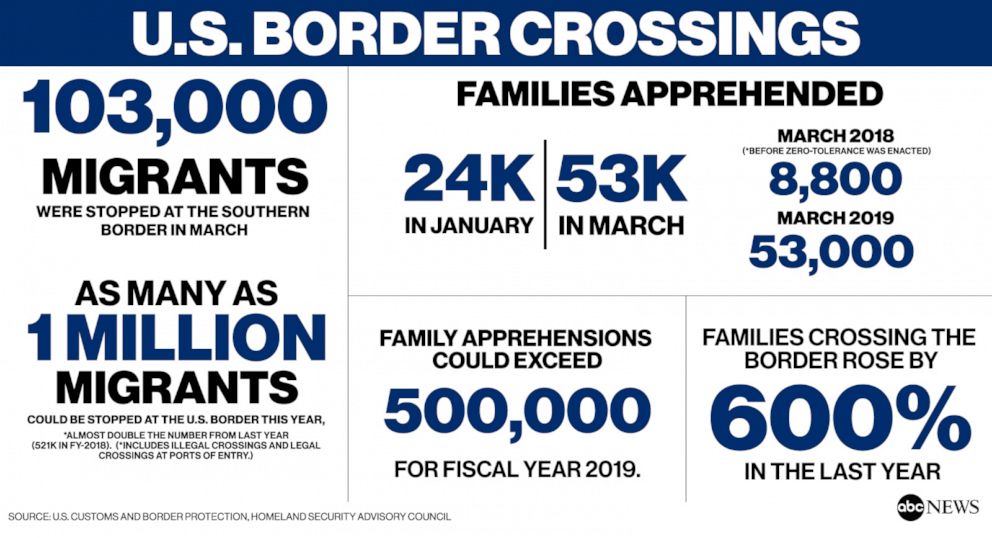
In February, ABC News producers also met Elmer, another father from Honduras heading to the U.S. border to seek refuge and reunification with his 15-year-old daughter, Marisol.
Elmer said that he and his daughter fled their home after they both received death threats because of his work as a policeman, investigating a gang murder.
"When we arrived at Immigration, they send us to the so-called iceboxes. And that is … I am not going to explain … I cannot find the ways to express what we went through in there," Elmer said.
Elmer said that Marisol spent a night shivering with a fever. "And they took her away and they told me, ‘Look, we are going to take your daughter so that she can get changed.' I never saw her again," he said.
In an interview with ABC News, Marisol also described being distraught and bewildered. "And I, with my tears, waited to see when he would come. And that's how the days passed. He didn't show up," she said.
Marisol was held in a detention center for migrant youth in Florida for six months.
"They assign you a number, your ID number, everything. I mean, they don't call you by your name there. Almost never do they call you by your name. They call you by your number," Marisol told ABC News.
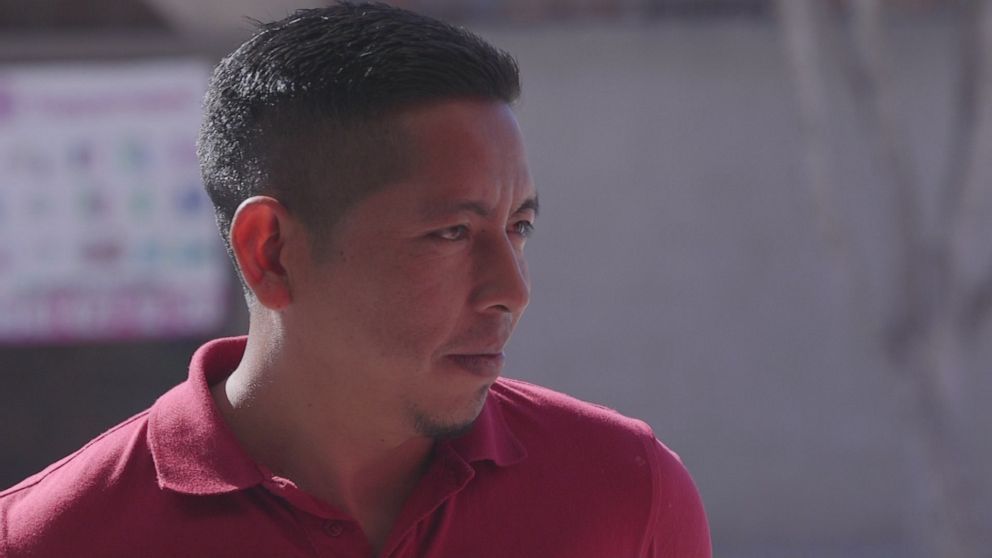
Eventually, Marisol was taken in by relatives in Wisconsin.
Pinheiro has observed this kind of trauma before. "What I've seen in a lot of these cases, the kids hold a lot of resentment towards their parents. Because even if they understand intellectually that their parent did not abandon them, emotionally they can't process that," Pinheiro said.
On March 2, nearly a year after their unwilling farewells with their children, Jesus, Elmer and dozens of other parents arrived at the U.S.-Mexico border once again. This time, at the Mexicali port of entry, they were joined by Pinheiro and a small army of volunteers who helped them apply for asylum and try to reunite with their children.
"I don't know what's going to happen. And I kept telling the parents you have to prepare for the worst," Pinheiro told ABC News as the families got ready to present themselves to U.S. border officials.
Immediately, they ran into the first road block, when U.S. agents told the families they do not have the capacity to process them. But 10 hours of negotiations later, a door opens.
"It's random. You know they'll be two families with the same facts, right? The same immigration history and one can get paroled out or could get separated another could be detained for a year. It's just it's really the luck of the draw," Pinheiro explained.
Jesus and his family were quickly released from U.S. government custody and soon flew to Washington, D.C., to reunite with Ariel.
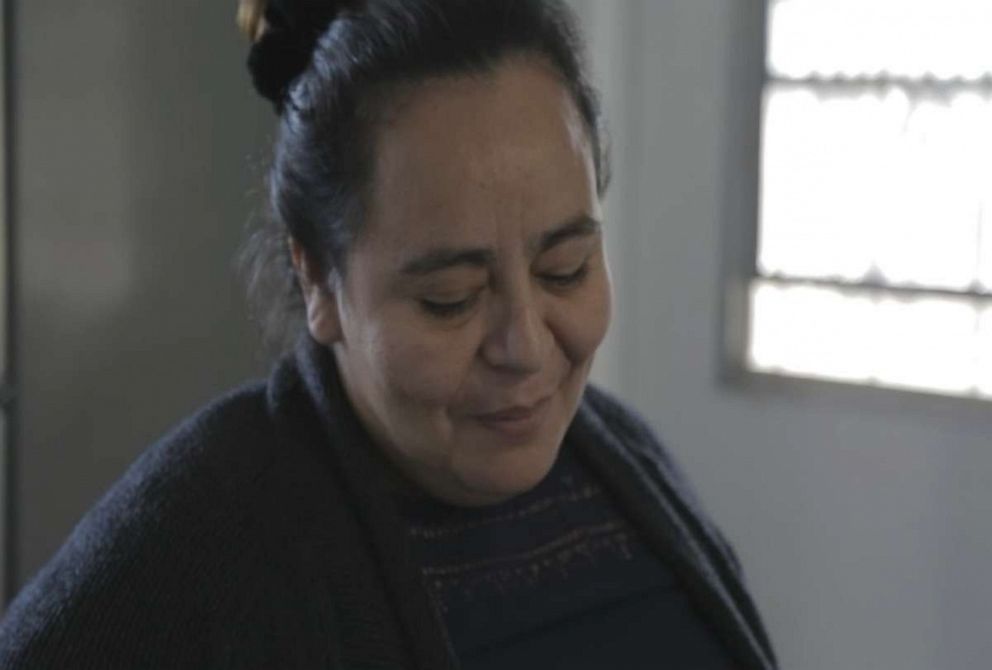
"Finally we're together. I never lost hope. I knew we were going to see each other again," Jesus told his son during their long-awaited embrace. The family, now intact, is currently living with a sponsor family in Indiana.
But a long and grueling journey to gain asylum in the U.S. still lies ahead, with only a slim chance of success. A report released Wednesday by the Homeland Security Advisory Council found that less than 15% of Central American families will likely be granted asylum, a process that can take over two years.
Elmer and 16 other parents who traveled together from Tijuana were not as fortunate as Jesus. After crossing the border, they were detained at the Imperial Regional Detention Center, an Immigration and Customs Enforcement facility located in Calexico, California.
"The officers are nice. The officers, yes. They treat you well here. But, as I told you, you're locked inside. You're not free. You're depressed," Elmer said from the detention center.
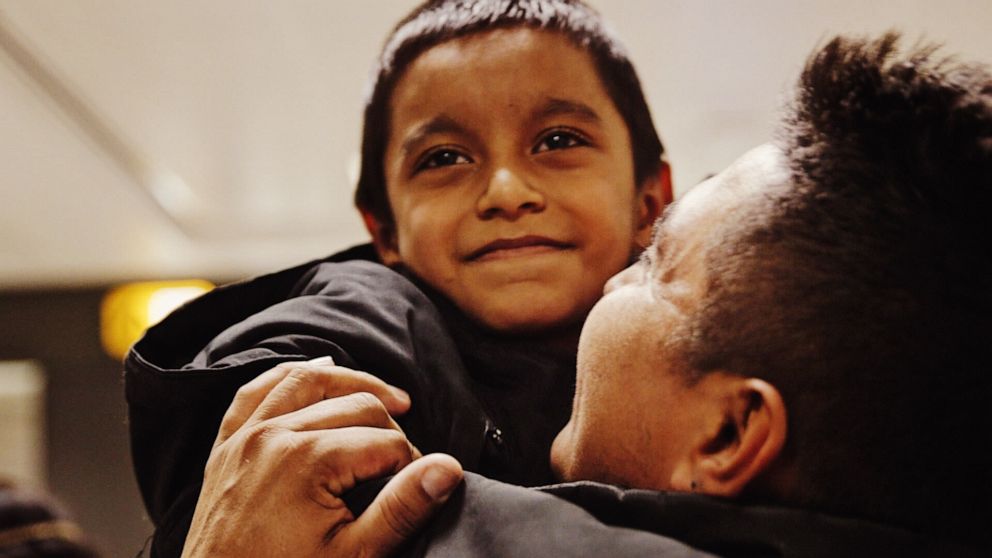
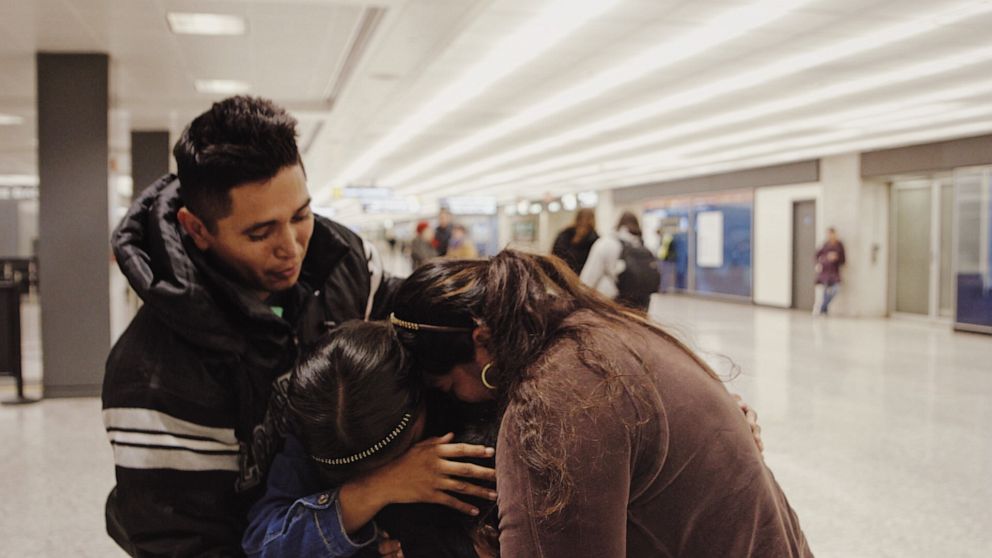
Elmer told ABC News that if he is deported again, he would make the harrowing choice of once again leaving Marisol behind in order to save her.
"I would prefer for her to be there and not see her ever again in person instead of sending her back to my country because she has no future there. And the danger that she was in -- that was the reason why I took her with me," Elmer said.
But after a month locked up in ICE detention, and eleven long months apart from Marisol, Elmer and his daughter were finally reunited this week.
"We're so happy, we don't even have words," he said.
They are staying in Wisconsin and making up for lost time while they seek asylum.
Jesus and Elmer, along with their families, have joined an ongoing class action lawsuit against the Trump administration filed by the American Civil Liberties Union, known as Ms. L v. U.S. Immigration and Customs Enforcement et al. The judge in that case had ordered the government to help find and reunify families that have been improperly separated.
Multiple government agencies, including the Department of Homeland Security, Customs and Border Protection and ICE, declined to comment about Elmer, Jesus and their families, citing this active litigation.





